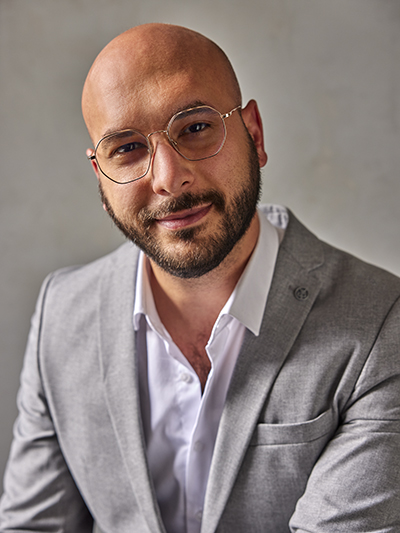Rawad Zahi Wehbe’s research focuses on structural, formal, and emotional poetics across periodization in the Arabic literary tradition. In his dissertation, he examines structural innovation through studying the poetry and biographies of the Mukhaḍramūn, liminal poets who lived between the pre-Islamic and early Islamic eras, to understand how early Islamic poets contested historical change across affective temporalities. This project challenges the conception of generational poets as homogenous fixed historical-temporal categories. Instead, he reconceptualizes liminality as a negotiation and argues that emotion is the primary motive driving diverse structural innovations in poetry. This approach circumvents the issue of authenticity in early Islamic poetry by shaping theoretical frameworks from the encapsulating biographical anecdotes of the poets through which individual poems or larger repertoires can be read. His commitment to language and affect aims to make reading poetry feel urgent, allowing us to forge authentic connections with early Arabic and Islamic poets.
Rawad Wehbe
Wolf Humanities Center Doctoral Fellow
2023—2024 Forum on Revolution
Rawad Wehbe
Ph.D. Candidate, Near Eastern Languages and Civilizations
Malmūm: Feeling Across Affective Temporalities in Ibn Muqbil's Annular Poetics
My project investigates the relationship between emotion, form, and revolution in the poetry of the Mukhaḍramūn, a generation of Arab poets spanning the pre-Islamic and Islamic eras. Through close reading and structural analysis, I argue that poetry served as a refuge for early Muslim converts who faced ethical dilemmas in a rapidly transforming world, and a platform for poets to lead revolutions within, and against, the institution of the Arabic poetic tradition. I explore how poets contest historical change through the emotions they embody, recite and inscribe in their poetry. I focus on Ibn Muqbil who penetrates the surface of Mukhaḍram as a thematic motif to reach a deeper articulation of his conflicted emotions within the formal and structural technology of the traditional Arabic poem. By disrupting the arrangement of the poem’s structural parts, the emergent form reenacts the crisis of historical movement. By emphasizing the formal innovations in Ibn Muqbil’s poetry, I conceptualize Khaḍrama as a process, a series of negotiations, reorientations, and revolutions vis-à-vis the end of an era. Paradoxically, his anxiety about an evanescing pre-Islamic past, expressed at the level of form, preserves Ibn Muqbil in the Arabic poetic tradition despite his fraught relationship with Islam.



